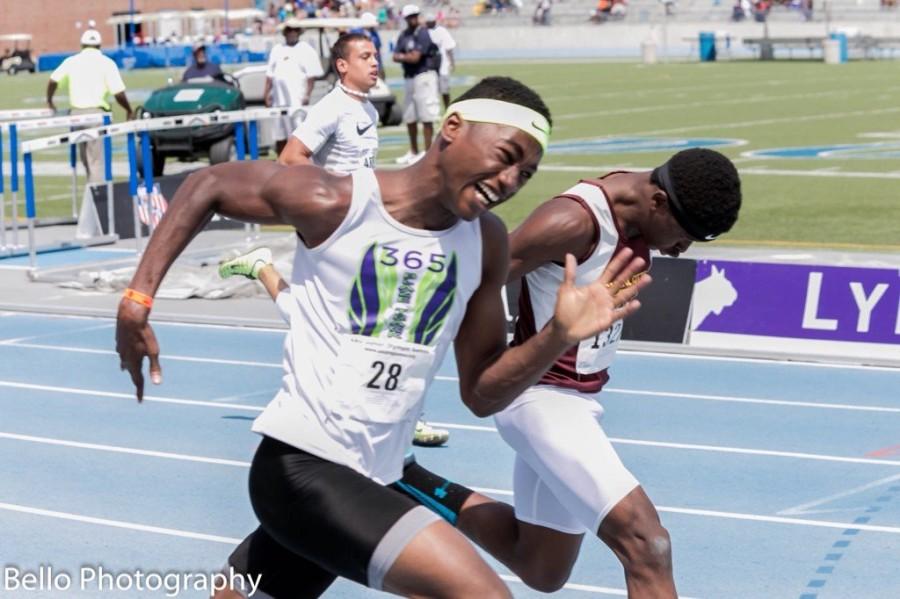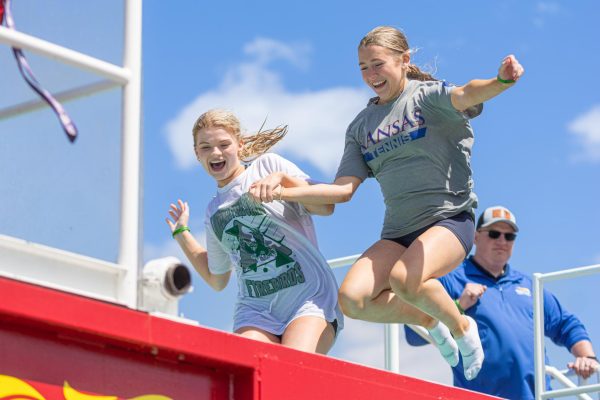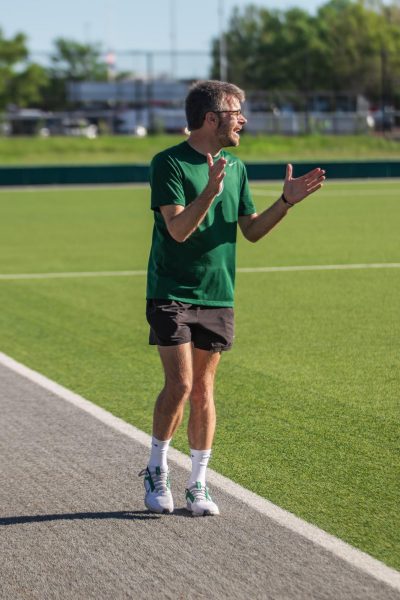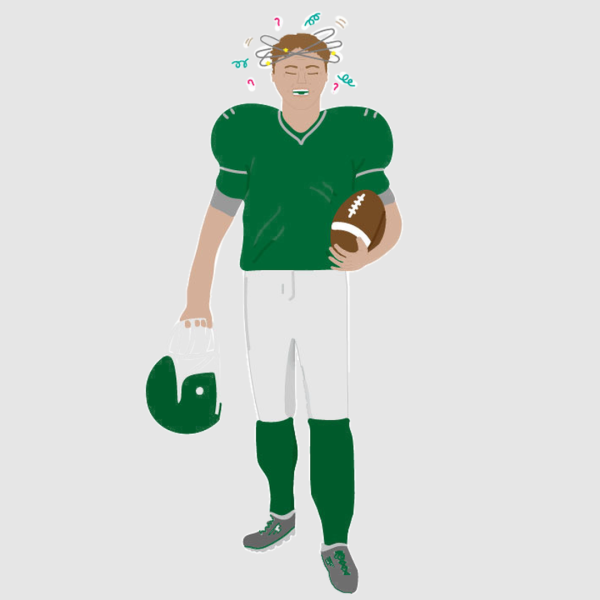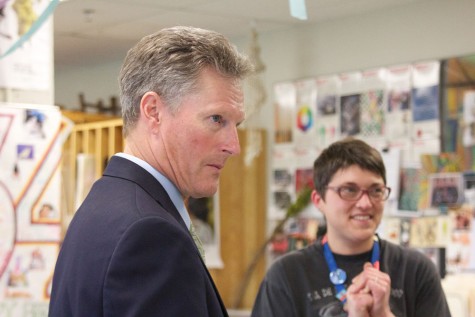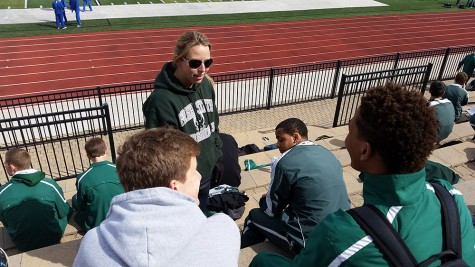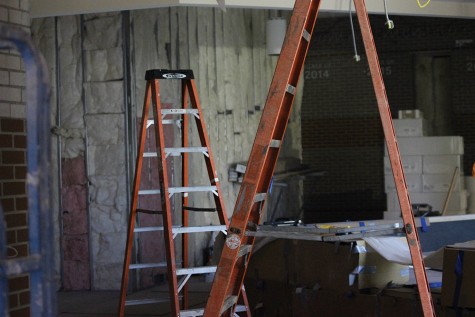Track athletes compete at AAU Junior Olympic Games
Hakeem Bello, Bello Photography
Sophomore Avin Lane competes at the AAU Junior Olympic Games. Lane placed fifth overall in the 200 meter finals.
With her earbuds in and her spikes laced up, senior Kiara Clark listens to Ed Sheeran’s “Thinking Out Loud” and tries to calm her nerves before the announcer calls her to lineup for her first Junior Olympics race of the day.
From July 26 to Aug. 2, track athletes, Clark, senior Gabbi Dabney, sophomore Avin Lane and junior Ronald White, competed in the Amateur Athletic Union (AAU) Junior Olympic Games at Drake Stadium in Des Moines, Iowa.
Each athlete participated in a different set of events: Clark in the 100 hurdles, 400 hurdles, 4×400 relay and heptathlon, Dabney in the 100 hurdles and heptathlon, Lane in the 100, 200 and 4×100 relay and White in the 4×100 relay. Dabney also qualified in high jump, but sat out due to calf pains.
While they all ended up at the Junior Olympics this summer, each competitor took a different route.
Lane got involved in AAU track at White’s suggestion. Since Lane is passionate about sprinting, he was onboard.
“I like running the 200 mainly because it really has to do with heart,” Lane said.
Like Lane, Clark joined an AAU track team because of a teammate. After Clark finished seventh grade, Free State alumnus Alexa Harmon-Thomas asked Clark to join her summer team in Kansas City.
“Looking back on it now, it just wasn’t even a thought,” Clark said. “I was so in love with track back then, and so I was like, ‘Yeah, I want to do more of this.’”
Dabney, on the other hand, chose to compete in AAU this year because the USA Track & Field (USATF) Junior Olympic Regional Meet was further away than her mother wanted to travel. Dabney has gone to four AAU national meets as well as qualified for four USATF national meets; however, she has never been to a USATF national meet.
Preparing for AAU nationals requires rigorous training, and practices are built around an athlete’s specific event(s).
“My coach was in the NFL and played for the Miami Dolphins, so he knows what he’s doing,” Clark said. “… He knows what’s really gonna push us without sending us over the edge.”
Competing on the national level taught the athletes lessons that they hope to implement in the rest of their track careers.
“… When you’re competing at such a high level, you have to learn to be more mature and more focused on yourself than what someone else is doing,” Dabney said. “You’re thinking about what you need to get done, so you can perform at your best ability.”
Head track coach Jordan Rose notes several qualities that help these athletes take on challenging meets.
“All of those kids have some high expectations for themselves and set very achievable yet high goals for their times and their races that they’re competing in,” Rose said. “Most of them are very coachable. They’re able to fix issues and work on problems that may be holding them back somewhat.”
As Clark continues her track career, she plans to hold herself to these high expectations regardless of the competition.
“(I’ve learned) to do my best every race and treat every race like it is nationals, so I can get a PR (personal record) instead of just going through the motions every time until regionals and state when it really matters,” Clark said.



